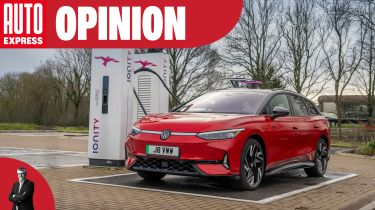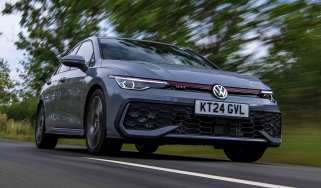Electric car drivers won’t ever go back to petrol or diesel
Editor Paul Barker thinks the EV transition is coming whether we like it or not

It’s a conversation we’re having often with industry figures – how do we kick the UK’s electric car market into life?
Truth is, the majority of EV drivers (with a few exceptions) won’t ever go back to petrol or diesel. If it works for you, then it works. That likely requires the ability to charge at home, but the point remains that a high proportion of EV drivers are happy with their choice.
Nissan’s figures show 95 per cent want another EV; Ford says 89 per cent of EV drivers don’t go back to ICE; and our own Carwow Group data at Auto Express shows that 82 per cent of EV drivers say the same tech would be their first choice when they change vehicles. So there’s clearly very little regret from those who’ve made the switch.
So why is there still negativity about EVs? I get why full-on car lovers, people without off-street charging, and those who do regular journeys of more than 200 miles aren’t keen. But for most, I think it’s a comfort blanket of the familiar.
That’s why we need to incentivise the transition. I’m not going to get into environmental arguments – that’s a topic for another time – but governments feel the case is proven that EVs are better in terms of air quality, and they’re the ones dictating the direction of travel. It’s coming whether we like it or not.
But people clearly need a little help to convince them to go electric. It’s worked brilliantly for company cars, because the Benefit-in-Kind tax regime has made EVs such a financial open goal. But for private buyers? Not so much.
Obviously, there’s a question about whether we should be artificially boosting the EV market at all. If the tech is that good, why not give it time to be adopted organically rather than forced through? Humans are creatures of habit and, early adopters aside, tend to gravitate to what they know. Especially when there’s scaremonger-fuelled fear that the regular journey you’ve managed in an ICE car for many years will suddenly become a problem-littered hell drive.
Two things that would help would be to reduce the cost of public charging – easily achieved by cutting the rate of VAT from 20 per cent to 5 per cent on electricity (as it is at home) – and by coming up with ways to boost the used market. More used demand means values rise, leasing rates go down and more people can go for a new EV.
Do you agree with Paul? Let us know your thoughts in the comments section...




